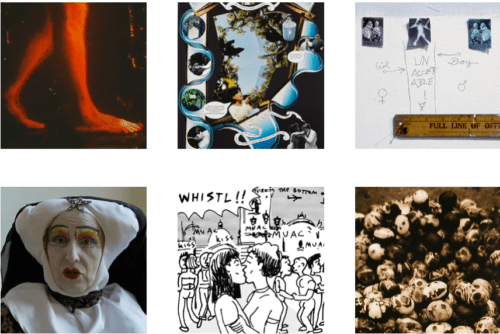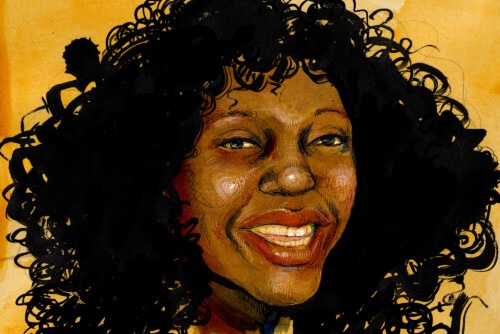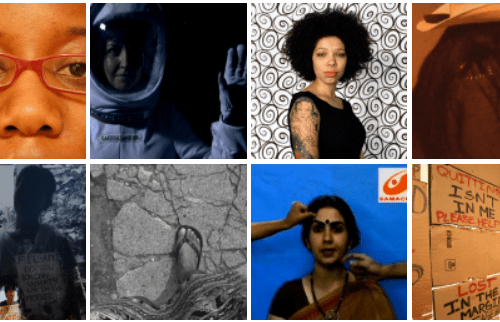What Are We Talking About When We Talk about ‘Islam’?
As Edward Said argued in Covering Islam, one of the main problems with the mainstream Western discourse is that it constructs a flattened and monolithic idea of Islam which it then uses to explain the behavior of all Muslims regardless of their varied cultural, social and political contexts.
“Islam” as it is used today seems to mean one simple thing but in fact is part fiction, part ideological label, part minimal designation of a religion called Islam. In no really significant way is there a direct correspondence between the “Islam” in common Western usage and the enormously varied life that goes on within the world of Islam, with its more than 800,000,000 people, its millions of square miles of territory principally in Africa and Asia, its dozens of societies, states, histories, geographies, cultures. 1
Said goes on to question the notion that this thing called “Islam” can explain complex behaviors, at the individual as well as the collective level:
Is there such a thing as Islamic behavior? What connects Islam at the level of everyday life to Islam at the level of doctrine in the various Islamic societies? How really useful is “Islam” as a concept for understanding Morocco and Saudi Arabia and Syria and Indonesia? 2
Unfortunately, in the thirty years since Said penned his original critique of Orientalism, things have only gotten worse as far as the mainstream Western understanding of, and discourse on, Islam is concerned. Perhaps this is not surprising, given that Western—specifically U.S.—political investment in parts of the world that are predominantly Muslim has also intensified during precisely this period. This neo-colonial project requires an ideological framework to legitimate it just as the earlier colonial project did. And, as before, this ideological discourse features a civilizing mission structured around the need to save native (i.e. Muslim) women and queers from ‘their’ inferior and threatening culture-religion (Islam).
As the above quotes from Said indicate, there are serious problems with trying to use ‘Islam’ to explain too much of the personal and social life of Muslims. In fact, any attempt to deploy the category in a meaningful or systematic way immediately reveals its fuzziness. When we use the term ‘Islam,’ do we mean the textual sources of Islamic tradition, namely the Quran and Sunnah? Do we mean the shariah, the system of Islamic jurisprudence, which is itself not a unitary thing? Do we mean the ways in which various political groups—and often the State—in Muslim societies deploy Islam? Or do we mean Islam as it is popularly understood and practiced, which changes every fifty miles or so?
These issues are not specific to Islam, obviously. Sociologically speaking, culture and religion are difficult, if not impossible, to separate in any context—even in the ‘secular’ West. However, and ironically, Islam does pose a unique problem because of its decentralized nature. Even Islamic law—the ‘shariah‘ that is so often invoked in the mainstream discourse as if it were one monolithic body of religious law—is interpreted differently by different Muslim communities depending on which fiqh—or school of jurisprudence—they tend to favor. Interestingly, Muslims can switch back-and-forth between different schools of jurisprudence depending on which orientation they prefer at any given time. This is a far cry from the idea of a unitary ‘Islamic law’ popularized by the mainstream Western press.
Scholars have argued that instead of invoking Islam to explain behavior in ‘the Muslim World’ we should look at historical as well as contemporary social conditions, relations, and conflicts. In order to understand what this sort of analysis might look like, and what sorts of insights it might yield, let us turn to a specific Muslim country—Pakistan. Pakistan provides us with a crucial lens through which to examine the issues we are trying to grapple with here. It is a Muslim-majority country which officially designates itself an ‘Islamic Republic’ and it has often been the subject of media attention in the West—not only for its role in the nine-year-old war in neighboring Afghanistan, but also because of the declining status of its women.
The (changing) role of religion in Pakistan—as in India and Bangladesh—cannot be understood outside of the region’s colonial and post-colonial history. The British politicized religion during the course of their rule in the subcontinent, and religious discourse and identity became a crucial part of the anti-colonial struggle. During the Cold War, the United States found it expedient to use religious ideology to counter ‘God-less’ communism across the globe and followed a conscious strategy of funding and otherwise supporting the most virulent forms of political Islam across the Muslim world, and Pakistan was no exception. Although the well-read American may today make the connection to the proxy war with the Soviet Union in the late 1970s and 1980s when the U.S. and the Pakistani army created the mujahideen and consciously bolstered their ideology of jihad, this relationship actually went much further back, to the 1950s and 60s when the U.S. began to support the neo-fascist Jama’at-i-Islami of Abu Ala Maududi, which was geared towards producing Cold War propaganda about Godless communism. The JI, not surprisingly, grew significantly as an organization in this period, going from being marginal in national politics to being a serious political player under the martial law regime of General Ayub Khan (another American-supported dictator) in the 1960s. It is worth noting that despite all this, the JI proved to be no match for the tide of socialism that was sweeping Pakistan at this time . 3
It was not until the 1980s and the arrival of another American-backed dictator—General Zia ul Haq—that the Jama’at-i Islami’s fortunes turned once again. In order to legitimize his claim to power, Zia did more to destroy the secular basis of the state than anyone before him. He installed members of the JI in key parts of the state, created the Shariat Courts (which, it must be noted, were appellate courts and did not replace the existing judicial system), destroyed secular student politics in universities and shifted the terms of political debate in Pakistan.
The main focus of Zia’s program of Islamization and the moral renewal of Pakistani society was the control of women, specifically the need to return them to the ‘chardivari’ or the home. This was a class project—Zia’s base was the urban petty-bourgeoisie which had been feeling culturally and economically threatened by the recent entry of large numbers of women into the public sphere.
And yet, despite all this ‘Islamization’, something called ‘Islam’ cannot explain the actual ways and means by which women’s bodies and sexuality are managed and/or controlled in contemporary Pakistan. I want to illustrate this through the example of two important cases from Pakistan. A close look at these will help us understand just how impossible it is to think of ‘Islam’ as being the source of Muslim women’s problems, and how complex the reality actually is. What I seek to demonstrate through these cases is that Islam is invoked very selectively, even in so-called ‘Islamic societies,’ and even when the issue is the control of women’s sexuality. In fact, sometimes the rights granted to women under Islamic law become inconvenient for the purposes of patriarchal control, in which case ‘Islam’ is all-too-easily tossed aside in favor of ‘custom’ and ‘tradition.’ This is an aspect of what I call ‘patriarchal opportunism,’ whereby patriarchal structures from families to nation-states strategically select elements from an ideological ‘toolbox’ in their attempt to gain support for the sexual regulation of women.
- Edward Said, Covering Islam: How the Media and Experts Determine How We See the Rest of the World (New York: Pantheon, 1981): x.[↑]
- Said, xv.[↑]
- In fact, Islamist parties have never managed to turn their rhetoric into electoral victory in Pakistan, except through the rigged election of 2002, held by another American-supported dictator, General Pervez Musharraf.[↑]



